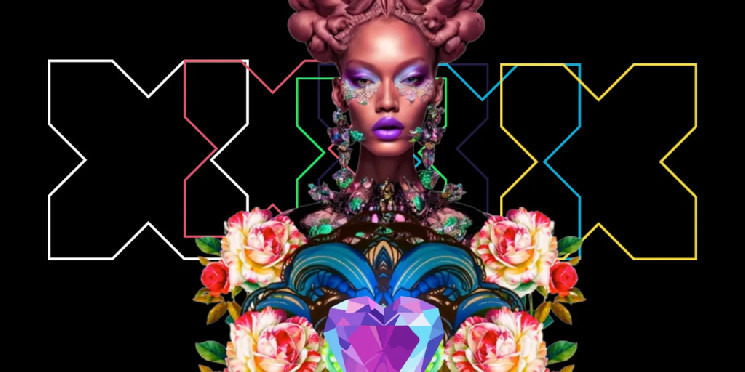Major brands have been making interesting moves with NFTs, but here’s an example that’s decidedly different from the typical consumer-facing fare: a division of European food services and facilities management giant Sodexo just launched tokenized profile pictures (PFPs) for all of its employees.
Sodexo’s Benefits and Rewards Services’ (BRS) division, which recently rebranded to Pluxee, plans to spin out and go public in 2024. And the division has prepared a vibe shift to go along with that structural change, creating bold employee NFTs in collaboration with the Dfinity Foundation and $NFT marketplace Yumi via the Internet Computer blockchain.
Dubbed “The X Collection,” the artwork was created by US-based applied artist Candace Marquette and depicts digitally rendered people and animals. A Yumi blog post says the collection is inspired by six types of natural elements—clouds, land, water, light, air, and fire.

Broadly, Sodexo provides a range of services, including school and workplace food services and facilities and workplace management. It is publicly listed on the Euronext Paris and serves 100 million consumers daily, per its website, with some 422,000 employees and annual revenue topping 21 billion euros the last fiscal year.
The Pluxee division provides benefit initiatives for employees at an array of companies—some 500,000 firms utilize the service, Pluxee says, servicing over 36 million users with things like meal cards and wellness programs. Pluxee itself has about 5,000 employees.
Pluxee’s project is made up of 5,000 digital collectibles—NFTs inspired by the 31 countries the company currently operates in. The brand said in a press release the initiative is a demonstration of its “belief in cutting-edge technology.”
At the moment, the main utility is the digital assets’ use as a profile picture for Pluxee’s own employees. But it may also be intended as a showcase of what’s possible for companies that Pluxee serves, with the firm saying in a release that it “marks a new use case for NFTs as tools to increase employee engagement and enrich company culture.”
“At Pluxee, we’re committed to creating personalized and sustainable experiences, and these unique NFTs served this purpose perfectly,” said Suvodeep Das, Sodexo’s Global VP Multi-Benefits & Gift, via email. He added that the reveal created “a lot of excitement” among employees.
“Throughout our teams, employees are now using these Pluxee-branded NFTs across multiple touchpoints and their own personal social networks,” said Das.
Pluxee’s employees are able to trade the digital collectibles among their peers and transfer the assets into their own wallets. Das said he does not expect them to have resale value, however, and did not outline any future utility.
Pluxee said it chose to partner with developer Dfinity and use the Internet Computer blockchain because of its energy efficiency and commitment to sustainability. As part of the drop, the company committed to donating €1 per $NFT claimed—for a potential maximum of €5,000, or about $5,440—to its Stop Hunger charity initiative.
It isn’t the first time Sodexo’s rewards brand has dabbled in blockchain. The business already offers a blockchain-based employee benefits solution in Chile and Uruguay, which the company called “the first of its kind” in the employee benefits sector.
This corporate drop marks the latest example of multinationals taking notice of Web3 tech, as mainstream brands continue to dip their toes in Web3 waters in the hope of finding new ways to engage consumers. Others have done it in a more customer-facing way.
Coffee conglomerate Starbucks set up its crypto stall with an $NFT-based rewards program called Starbucks Odyssey on Ethereum sidechain network Polygon, and has sold limited edition $NFT collectibles to users. Amazon is also reportedly mulling the launch of a marketplace for NFTs tied to real world assets.
 decrypt.co
decrypt.co
